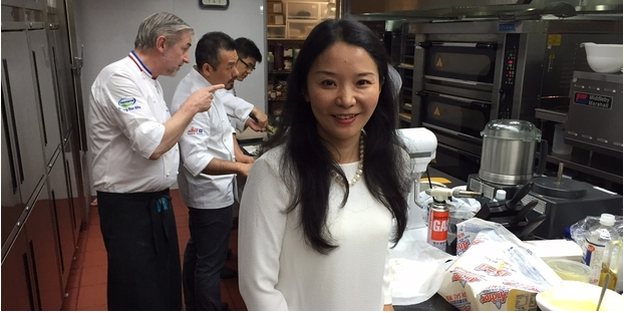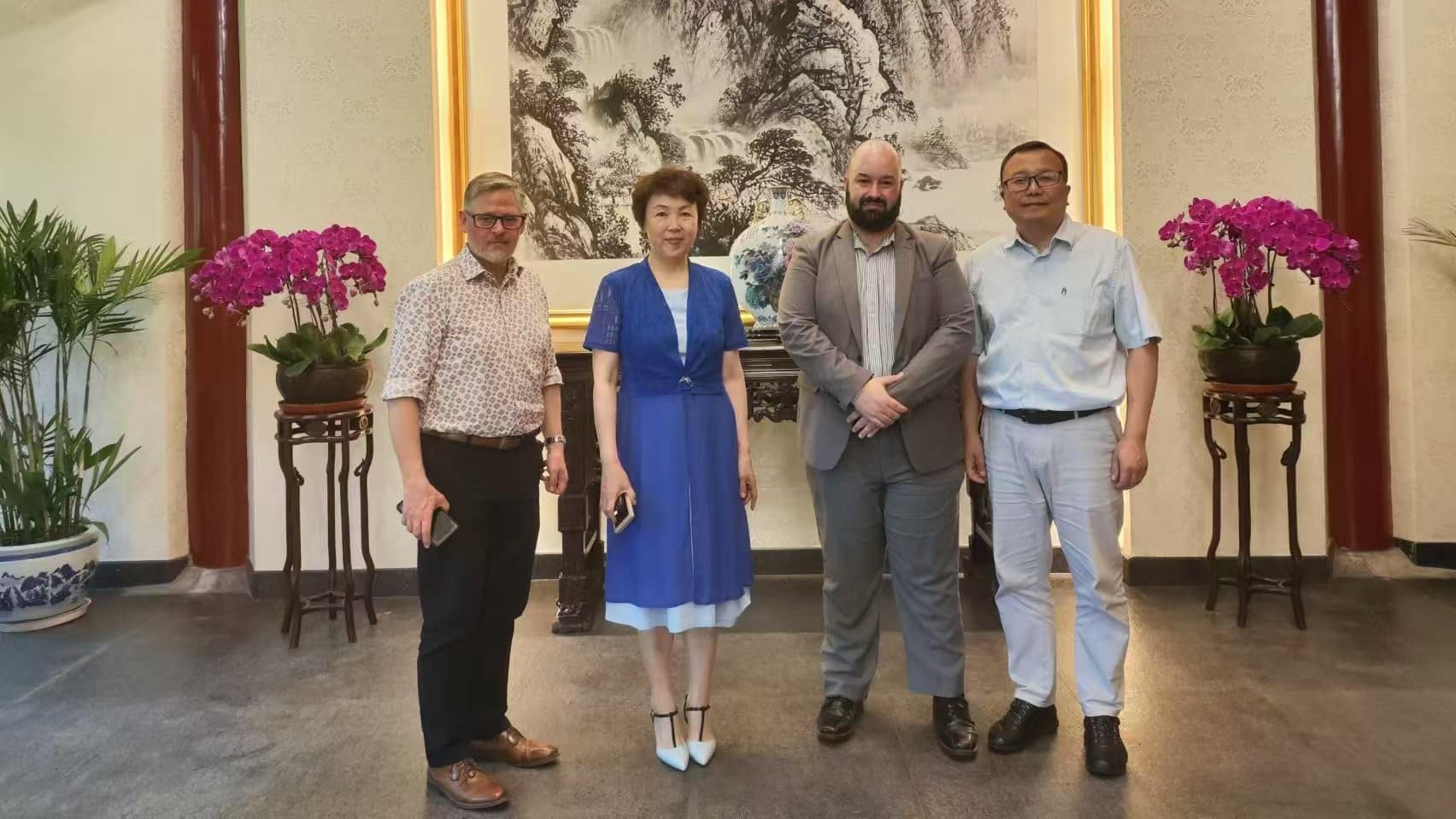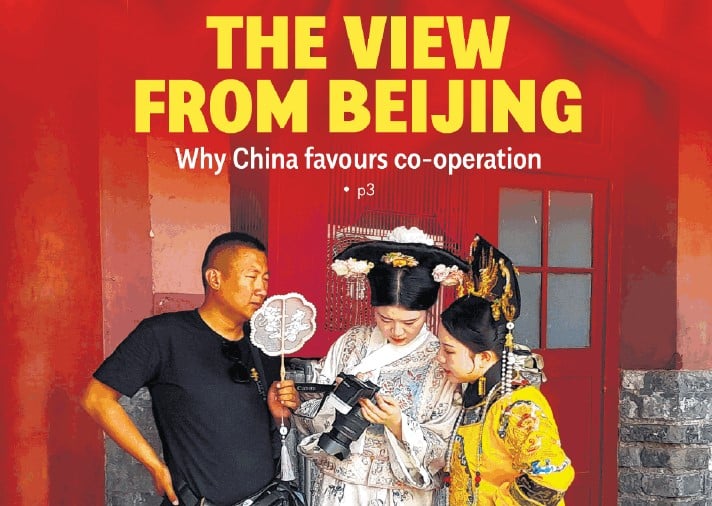Dairy giant still sold on China
This article originally appeared in the New Zealand Herald. It was written by Christopher Adams, recipient of the 2016 New Zealand China Council Media Award.
Christina Zhu didn’t know quite what she was getting herself into when she joined Fonterra in 2011.
The managing director of the dairy co-op’s Greater China operations was well aware of what the business involved.
What Zhu wasn’t prepared for was the attention – including scrutiny by the media – that came with her first role at the company, which put her in charge of the Chinese ingredients business. “That really surprised me,” she says.
It’s a level of attention Zhu never received in previous roles including high level positions at US conglomerate Honeywell, private equity firm Cerberus Capital Management and McKinsey & Co.
“Fonterra gets so much exposure … you would not fully understand it until you live in it,” she says.
The laser-like focus on the co-op’s Chinese operations is understandable, of course, given that Asia’s biggest economy is its most important market.
But China has been anything but an easy ride for the world’s biggest dairy exporter. There was the firm’s joint venture with Sanlu, one of the Chinese dairy companies caught up in the 2008 melamine scandal, in which at least six babies died and thousands more became sick after the toxic chemical was added to milk products.
Then in 2013 came the botulism fiasco, when Fonterra whey protein – used by a number of companies to make products including infant formula – was wrongly suspected of being contaminated with the bacterium Clostridium botulinum.
Though many markets were affected, including New Zealand, it particularly spooked Chinese consumers, who are highly sensitive to food safety scares.
Do we feel pressure? Of course. The farmers are going through a really difficult time.
More recently there has been the boom and then slump in Chinese demand for commodities such as milk powder, which has contributed to the dairy downturn afflicting the firm’s farmer shareholders.
Fonterra’s loss-making China farms, meanwhile, have been a source of discontent among the co-op’s shareholders.
“Are we perfect? No,” says Zhu. “Yes it’s hard and it’s challenging but [we’re doing] something meaningful.” She says those inside the Chinese business are acutely aware of the difficulties facing New Zealand farmers.
“Do we feel pressure? Of course. The farmers are going through a really difficult time,” Zhu says. “Understanding and awareness of that speaks loudly in every decision we make today and about every dollar we spend and every meeting that we have.”
Fonterra is regularly criticised for being too reliant on commodity exports, rather than higher value branded products, in China and in other markets.
Shanghai-based Zhu points out that earnings before interest and tax in the Greater China consumer and food service business (which includes Hong Kong and Taiwan) rose 353 per cent, to $68 million, in the first half of this financial year.
“We are making money in China,” she says. “The value-add is something we can control but the commodity price we can’t control.”
Zhu says Fonterra’s food service business in China, which includes brands such as Anchor, is going from strength to strength.
The company claims half of the pizzas made in China are topped with its mozzarella cheese, while 50 per cent of the cheesecakes gobbled up in the world’s most populous nation contain Fonterra cream cheese.
“In food service we’re definitely the leading brand here,” Zhu says. “We certainly intend to maintain and strengthen that leadership position – that’s very clear.”
China has come a long way in terms of the sophistication of the products made with Fonterra’s food service products.
Zhu recalls what passed for a cake when she was growing up in Suzhou, a city near Shanghai.
“They would sit in the hot sun and not melt for like a week,” she says. “That was my memory of the childhood cake – it was very thin, very white and very sturdy.” These days, upmarket bakeries can be found everywhere in China, from the glitzy streets of central Shanghai all the way to cities on the country’s periphery.
Another front in Fonterra’s push to move up the Chinese value chain is its partnership with Chinese infant formula maker Beingmate.
The tie-up saw the New Zealand company invest about $754 million last year for an 18.8 per cent stake in the Hangzhou-based firm.
The partnership has included the establishment of a joint venture manufacturing plant in Australia and a distribution deal for Fonterra’s Anmum formula brand, which only launched in China in 2013.
Zhu, who has a seat on Beingmate’s board, says it would have been difficult for Fonterra to crack the Chinese infant formula market on its own. “We thought the best way to achieve it was through a strong local partner,” she says.
Anmum infant formula is now stocked in 3000 Chinese stores and the company recently announced the brand had achieved sales growth of 107 per cent in China last year, albeit from a low base.
But as consumption continues to boom in big Chinese cities, it is taking place against the backdrop of an increasingly shaky economic outlook.
There are growing fears about the country’s rapidly rising debt – the Economist magazine reckons its debt-to-GDP ratio has ballooned from 150 per cent in 2008 to 260 per cent today – and massive overcapacity in the heavy industrial sectors.
Zhu says she’s confident about China’s future, but debt is a big issue.
“And it’s not just a debt issue – there are a lot of structural reforms that haven’t been carried out yet,” she says. “If you think about the last 30-plus years of reform and open door policy, it has been largely successful [but] the low hanging fruits have pretty much been taken.”
Zhu says the Chinese economy is now heading into “deep water” in terms of economic reform.
“Everybody understands it’s hard and there is no guarantee of success for any single programme,” she says. “But the direction the country has to go in is very clear because there’s no other way. You can’t go back and become a closed economy like we were 35 years ago.”
Zhu, however, says China’s darkening economic outlook is not a reason for Fonterra to scale back investment in the country.
“We’re here because we bring a valuable product to the market where there’s a need for that valuable product,” she says. “That’s not going to change.”
Christina Zhu
• Role: Managing director of Fonterra Greater China
• Joined Fonterra: 2011
• Grew up in: Suzhou, near Shanghai
• Work history: Includes positions with Honeywell, Cerberus Capital Management and McKinsey & Co
• Education: BA – Beijing Foreign Studies University; MBA – Columbia University












 MENU
MENU
